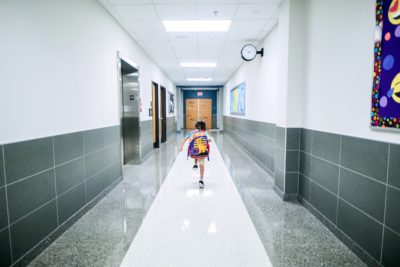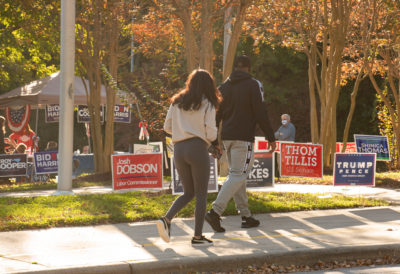The great debate across North Carolina and in its communities over the future of their preK-12 schools is not a debate solely about education policy and practices. The future of public schools also hinges on decisions on taxes, on budgets, on the commitment of public officials to invest in schools open to every resident’s sons and daughters.
That paragraph, of course, states the obvious. But sometimes the obvious needs emphasizing.
You can debate teacher pay, testing, common core, class size, school calendar and all such issues, but the delivery of quality education ultimately has a direct relationship to the tax revenues invested in the enterprise.
This is not to argue for unbridled taxing and spending, or that the more you spend, the better every school. But insufficient investment – tightly bridled spending, as it were – can thwart the most effective reforms.
The recent “consensus forecast” of a $400 million surplus, as well as projected small-scale growth in revenue over the next two fiscal years, gave the state House a little wiggle-room to adopt a general fund budget with several items on the increase-appropriations side of the ledger. Especially significant are appropriations for a digital learning plan and a school connectivity initiative.
The House budget provides funding for anticipated enrollment growth and for rather modest teacher pay raises – measures that would barely bend the trajectory of state education spending, at least in the near term. Perhaps Rep. Craig Horn, the House’s leading education budget-writer, is correct that “we are going to continue to raise the bar.” But, as the budget moves to the Senate, key Republican legislators talked of putting more money into emergency reserves and turning revenues back to the taxpayers – that is, cutting taxes further.
The General Assembly’s actions come in the context of North Carolina having experienced a sustained period of disinvestment in public education. The most recent analysis by the Washington-based Center on Budget and Policy Priorities shows North Carolina among 30 states with lower spending per pupil, adjusted for inflation, in the current fiscal year than before the big recession took hold in 2008.
When recessions hit, workers lose jobs, people and businesses cut back, and government revenues drop. States, including North Carolina, are forced to reduce spending to bring budgets into balance. But in North Carolina, the disinvestment in public education has continued through the recovery.
The Center of Budget and Policy Priorities found that 27 states had increased per pupil spending from fiscal 2014 to fiscal 2015. But not North Carolina, which had a $250 per pupil decline, according to the center’s calculations.
At least since the outset of the Reagan administration in 1981, many states, particularly in the South, have sunk into the mire of the tax versus no-tax debate. After engineering a huge tax cut in his first year in office, the former president discovered that the federal deficit got worse, not better; he recouped at least some revenues with a subsequent tax increase package. Reagan’s vice president, George H.W. Bush, won the presidency after pledging “no new taxes,” then suffered politically when he, too, discovered a need for revenues.
Now, in North Carolina, the Republican super-majority in the General Assembly has sought to out-Reagan Reagan on taxes. GOP lawmakers enacted a transformation of the state income tax – adopting a flat rate of 5.75 percent for all taxpayers, shifting from a three-rate, graduated structure that generally taxed according to ability to pay. The shift gave a larger rate cut to higher-income taxpayers who previously paid at a 7.75 percent rate, than to lower-income people who previously paid a 6 percent rate. And now, the new revenue estimates suggest that the state will reach the “trigger” that brings about further reductions in the corporate tax rate.
All in all, prevailing tax policy appears to rest on two interlocked premises: to keep a tight bridle on state government and to trust in the beneficence of economically powerful individuals and businesses.
Mo Green, the superintendent of Guilford County Schools, says, “You have to find alternative ways to support young people’s education.” Under the leadership of a countywide civic planning team, Guilford has emerged as a finalist for the national Say Yes to Education campaign.
Say Yes to Education, founded in the 1980s by the money manager George Weiss, works with selected communities to provide scholarships to public school graduates and to assist local leaders in structuring supports to give students a path to academic success. So far, Guilford County has raised $20 million from businesses and philanthropies of the $28 million needed to be selected as the next Say Yes community. If selected, Guilford County will need to raise a total of $70 million.
Green wonders, “how do we begin to look like colleges and universities,” which aggressively seek private individual, corporate and federal funding to sustain their quality going forward.
Recommended reading




